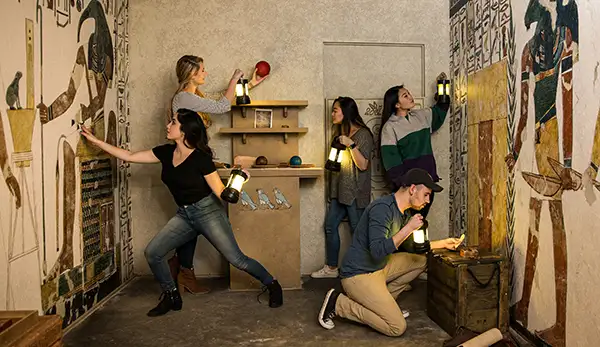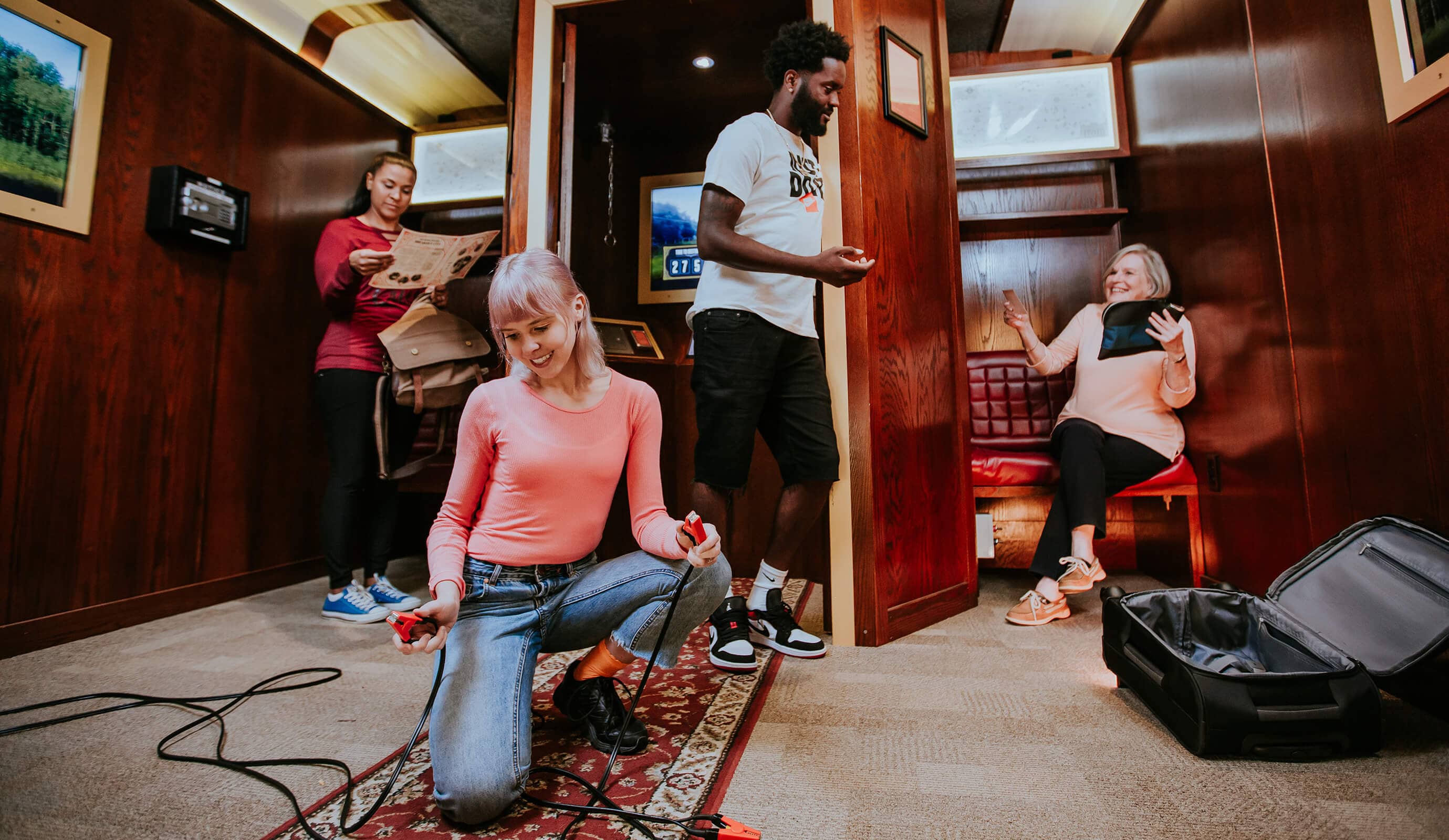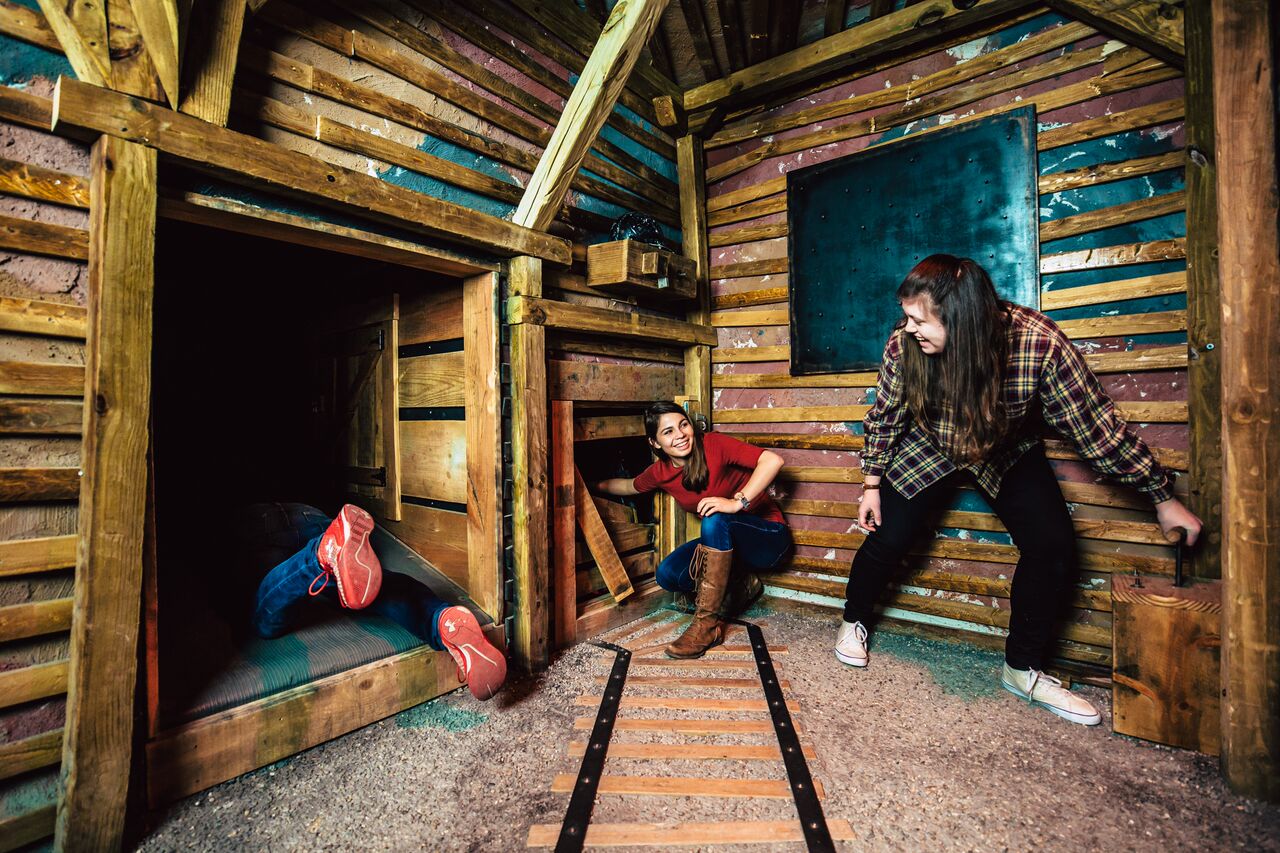Enjoyable and Testing Escape Room-- Strategy Your Next Journey
Enjoyable and Testing Escape Room-- Strategy Your Next Journey
Blog Article
Team Techniques: Exactly How to Team up Effectively in a Getaway Area
Navigating the complexities of a getaway area demands even more than mere interest; it needs a well-coordinated approach based in clear interaction, tactical duty assignments, and adept time administration. Groups must actively pay attention to each participant's insights, designate duties that straighten with specific toughness, and maintain routine check-ins to guarantee emphasis and prevent redundancy. By cultivating a setting that values communication and adaptability, groups can considerably enhance their performance and success rates. The nuances of these strategies can transform the experience, yet how precisely can they be implemented to take full advantage of the possibility for success?
Establish Clear Communication

To help with clear communication, it is important to designate a main point of call for details dissemination. This role includes summing up searchings for and proposed strategies to guarantee everyone stays on the exact same web page. Furthermore, taking on a systematic approach to discussions can prevent chaotic exchanges. As an example, brief, focused updates from each employee can keep the group informed without overwhelming them with details.

Designate Duties Strategically
While clear interaction establishes the foundation for efficient teamwork, designating functions tactically guarantees that each staff member's staminas are made use of efficiently. In an escape room circumstance, the time-sensitive and intricate nature of difficulties necessitates an efficient technique to job delegation. By determining and leveraging private competencies, groups can maximize their problem-solving abilities and improve general performance.
Somebody with a keen eye for detail could succeed in finding surprise things, while a rational thinker might be better suited to resolving puzzles. This role commonly needs strong business and social skills.
2nd, ensure that functions are versatile and versatile. As new challenges arise, the group needs to have the ability to pivot, reapportioning tasks as required. This flexibility helps keep energy and protects against bottlenecks that can occur due to inflexible function assignments.
Ultimately, a strategic strategy to duty job not only optimizes the strengths of each team participant however also cultivates a natural environment, driving the group towards an effective getaway.
Use Diverse Abilities
Recognizing and harnessing the varied skills within your team can considerably boost your performance in a getaway area. Each staff member brings one-of-a-kind staminas to the table, and successfully leveraging these capacities can accelerate problem-solving and enhance total efficiency. A team member with solid analytical skills might succeed at deciphering complex codes or patterns, while another with keen observational capabilities might quickly detect concealed hints that others could neglect.
Encourage team members to articulate their insights and concepts promptly, making certain that all potential services are thought about. In addition, appointing you could try here jobs that straighten with each member's strengths can protect against bottlenecks and ensure that development is continuous.
Additionally, diversity in skills often converts to variety in assuming styles, which is vital in a retreat room setting. While some obstacles may need sensible reasoning and accuracy, others may benefit from creative and lateral reasoning. By recognizing and leveraging this diversity, teams can address a broader series of difficulties better, therefore raising their chances of a successful escape.
Manage Time Properly

Identify noticeable challenges and separate tasks based on group members' strengths, ensuring that no one is idle. This technique can aid keep the group concentrated and avoid time from slipping away unnoticed.
Additionally, avoid one-track mind. If a problem is taking as well long, revolve group participants or go on to another challenge, returning later on with fresh perspectives. Communication is critical-- keep every person upgraded on resolved puzzles and continuing to be Discover More jobs to prevent redundant efforts.
Finally, utilize any type of tips or hints moderately but strategically - best escape room. Recognizing when to ask for aid can save important time. By sticking to these time monitoring principles, teams can substantially improve their possibilities of an effective and delightful retreat space experience
Debrief and Show
Representation is a vital aspect of team growth and improvement in the context of retreat rooms. Once the challenge is finished, whether successfully or otherwise, it is important for the group to engage try this website in a structured debriefing session. This procedure allows group participants to examine their performance, recognize strengths, and pinpoint areas for improvement.
Start the debrief by discussing what went well. Highlight certain circumstances of efficient interaction, analytic, and cooperation. Identifying these favorable actions reinforces them and motivates their repetition in future challenges.
Next, attend to the barriers experienced. Go over moments of confusion, miscommunication, or inefficient methods. Encourage an open and useful dialogue where staff member can share their viewpoints without fear of objection. This fosters a society of constant enhancement and knowing.
Conclusion
To conclude, successful cooperation in a getaway area is asserted upon clear communication, strategic duty jobs, the reliable application of diverse skills, and efficient time monitoring. Regular check-ins and organized debriefings are crucial for maintaining emphasis and fostering continuous improvement. By producing a natural and flexible group atmosphere, the probability of efficiently resolving problems and attaining the goal of running away the area is substantially enhanced. This method not just ensures success however also promotes cumulative development and understanding.
Report this page